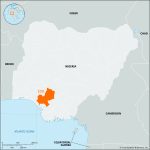According to Dr. Akintunde Sawyerr, Managing Director of the Nigerian Education Loan Fund, students attending universities in the southern region of Nigeria are not submitting loan applications because they are unsure of the loans’ feasibility.
Following President Bola Tinubu’s Wednesday commencement of the loan disbursement process at the Presidential Villa in Abuja, Sawyerr briefed State House media on this.
He pointed out that because higher education institutions in the area were working together better, more students from the North applied for the loans.
“In the southern part of the country, there’s growing awareness and interest. There’s been a lot of scepticism, and I think the most sceptical parts of the country are in the South; they question everything: Is it true? Is it real? Is it a scam?
“And I think what you witnessed today with us actually starting this disbursement programme is to say that ‘this is not NO FUND. This is NELFUND.’
“The zones with the highest, I can say to you that institutions in the North of the country have been very proactive at supporting and helping their students and providing their data to us,” Sawyerr said.
He gave Nigerians his word that when additional loans were given out, the initial doubts will fade.
“So, that’s where the leaning is currently. But that (high adoption in the North) is to be expected because they seem very well organised in terms of networking in the northern part of the country.
“So, I think we’ll see the scepticism that you can find mainly in the southern part begin to disappear when we start paying out,” he added.
However, Sawyerr stated that NELFUND was doing its share to spread awareness in the South so that when funding starts, students in the area would support the program.
Additionally, he disclosed that a higher number of university students than those attending polytechnics and education schools had sought for loans.
“We’re trying to ensure that people know this is not a trick, it’s not a game. Mr. President has backed this with cash and we’re going to disburse that cash.
“In terms of the three levels of institutions, the universities are the ones with the highest demand for the loans, then I think it’s followed by the polytechnics and then the teacher training colleges and I think it’s probably going to remain that way, the bias is going to remain that way,” he stated.
Due to their higher tuition costs, Sawyerr stated that students attending private universities were not eligible for the program. further stated that the government could not fulfill the initiative’s goals if it provided funding to students attending private universities.
“The effect of providing this opportunity for the most needy Nigerians, most capable Nigerians in many ways, and the people who probably will look after us, or whose decisions will impact on us in our old age, cannot be underestimated,” he added, affirming that the loan scheme will positively affect many lives in the nation.
“These are the most important people in the country that we’re trying to affect. So, I want to give all the praise and all the recognition to the President, His Excellency Bola Tinubu, for having the vision and the courage to do what he has just done. I’m sure you’ve all heard that fortune favours the brave and this courageous move will bring fortune not just to him but to the entire nation.”
The National President of the National Association of Nigerian Students, Lucky Imonife, also briefed journalists, reassuring them that all students, regardless of background, could apply for the loans.
“Nigerian students are happy that the dream has come true. It was once a dream, it has become an act and today is the presidential launch and disbursement.
“We are very proud of this. We, as Nigerian students, will call it a new dawn in the education sector.
“Whatever background you belong to, you can assess the loan. Once you apply, you will get it, irrespective of your status, your age and your class,” said Imonife.
The Presidency stated in an earlier explainer that the new law replaces the Student Loan Act, 2023, which was repealed due to various issues with governance and management, the purpose of the loans, applicant eligibility, application process, repayment terms, and loan recovery.
The Act aims to provide all Nigerian students and young people with access to functional skill development and sustainable higher education.




